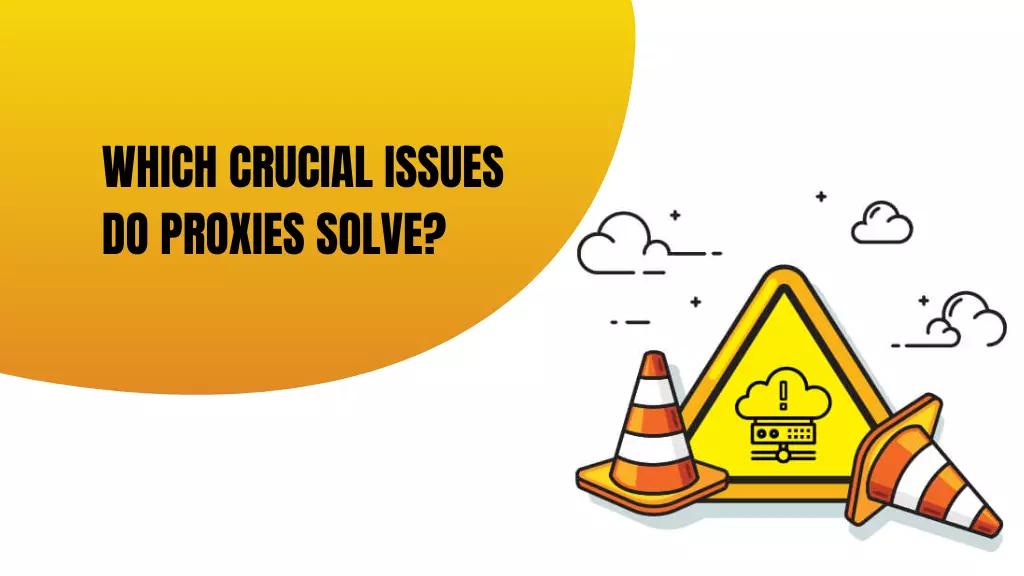Online privacy and anonymity are increasingly taking center stage. At the same time, internet users are wary about such measures as CAPTCHAs and IP blocks, which can prevent them from completing crucial tasks such as collecting data from websites. As a result, solutions that boost online anonymity and privacy and reduce the chances of IP blocks are growing in popularity. One of these solutions is the proxy server.
What is a Proxy Server?
A proxy server or proxy blocks direct communication between a user’s computer and web servers. It does this by acting as a go-between through which all internet traffic must pass en route to its target destination. This means both the outgoing web requests and incoming responses from a web server first go through the proxy.
Advantages of Proxy Servers
Generally, proxy servers are advantageous in many ways. By offering the following advantages, they help solve a number of crucial issues:
-
They boost online privacy and anonymity
-
Proxies prevent accurate geotargeting
-
They prevent CAPTCHAs and IP blocks
-
Proxies help bypass geo-restrictions
-
They promote security
How Proxies Boost Privacy and Anonymity
Typically, when you send a request to connect to a website, this request is packaged in an IP packet containing an HTTP header and the actual content of the request. On its part, the header stores the IP address, which, in turn, stores information such as your internet service provider (ISP) and your location. This means that whenever you send the request, the website sees your IP address and, therefore, accesses this information.
As intermediaries, proxy servers are designed to prevent websites from seeing your real IP address. Given that the header must contain the IP address, the proxy strips your real IP and replaces it with a different address. It then forwards the request with the changes. Thus, while the website will see an IP address, the numbers will not in any way be directly linked to your ISP or location. It is thanks to this underlying mechanism that proxies provide online anonymity.
How Proxies Prevent CAPTCHAs and IP Blocks
Proxies hide your real IP address, protecting it from IP blocks. Instead, it is the proxy’s IP address that will get blocked. This arrangement enables you to visit the website later (using your real IP address) if need be. At the same time, proxies prevent IP blocks by rotating the assigned IP address. Rotating proxy servers periodically changes the IP address allocated to your computer.
This way, they limit the number of requests that can originate from the same IP. As a result, they reduce the chances of a web server displaying the CAPTCHA code or flagging an IP address.
How Proxies Prevent Geotargeting
Proxies block websites from collecting accurate location-based information about you by masking your real IP address. Further, the proxy servers prevent sites that use trackers or sell data about their visitors from retrieving accurate data about your location. This has a beneficial ripple effect. It subsequently prevents marketers from displaying ads that are customized to specific characteristics, such as your location geotargeting.
How Proxies Bypass Geo-Restrictions
Usually, websites display different content for different audiences based on their location. In some cases, sites may not even be accessible to residents of specific countries. The restriction of web content based on the geographic location of the visitors is known as geo-blocking. While it can feel discriminatory, you can unshackle yourselves from the constraints of this practice by using a proxy server.
If you want to access content that is otherwise restricted to residents of Germany, you can use German proxies. These proxies will assign you a Germany-based IP address, essentially routing your traffic through intermediaries located in the European country. In this way, the German proxies will transport you virtually to Germany, helping bypass geo-restrictions.
How Proxies Boost Cybersecurity
Server-side proxies (reverse proxies) protect web servers against malicious requests. For instance, they balance the incoming traffic among multiple proxies, thus preventing a situation whereby a single server gets overwhelmed and crashes. At the same time, forward proxies (client-side proxies) such as datacenter proxies and HTTP client proxies boost cybersecurity by scanning incoming responses for phishing links, malware, and viruses.
Uses of Proxies
By solving the critical issues discussed above, proxies are positioned as ideal solutions for a number of use cases, including:
-
Web scraping
-
Accessing geo-blocked content, as is the case with German proxies
-
Social media management
-
Ad verification and brand protection
-
Cybersecurity
-
Academic research
-
Load balancing (reverse proxies)
-
Caching frequently accessed server files (reverse proxies)
-
Blocking geo-targeted advertising
Conclusion
Proxy servers solve several critical issues that can impact both businesses and individuals. For instance, they provide online anonymity and privacy, boost cybersecurity, prevent CAPTCHA codes and IP blocks, and prevent geotargeting. In addition, proxies such as German proxies help bypass geo-restrictions. As a result of solving these issues, proxies are used for web scraping, load balancing, caching frequently accessed files, content filtering, and more.

